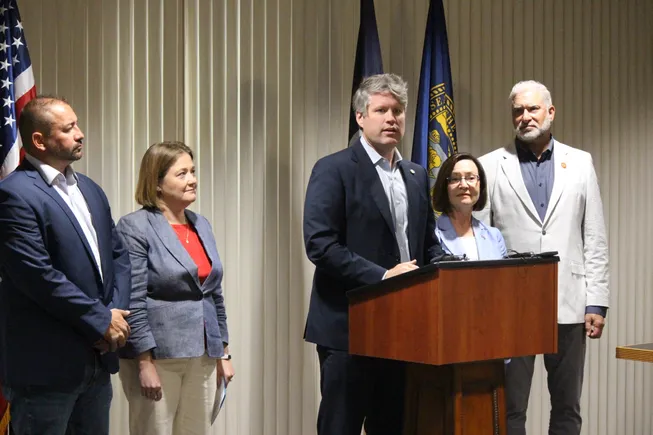Dive Brief:
- Eleven states asked the Environmental Protection Agency to add pesticide labeling requirements that would shield agrichemical giant Bayer from a wave of lawsuits alleging it failed to warn consumers that its popular weedkiller causes cancer.
- The effort, led by Nebraska and Iowa, petitions the EPA to prohibit pesticide labels containing statements about the product’’s health effects, including the likelihood of causing cancer, if they are inconsistent with the agency’s own findings.
- The move would block future lawsuits against Bayer regarding glyphosate, the main ingredient in the herbicide Roundup. While the World Health Organization’’s cancer agency lists glyphosate as a probable carcinogen, the EPA has found no evidence the chemical causes cancer when used as directed.
Dive Insight:
Fallout from thousands of Roundup consumer lawsuits in the past few years has weighed on Bayer’s earnings, and the chemical giant is embarking on an aggressive political lobbying campaign to prevent additional litigation.
In addition to pushing for new legal protections in this year’’s farm bill, Bayer has begun a state-by-state effort to shield itself and other pesticide makers from future lawsuits. The company has teamed with powerful farm groups to form the lobbying group Modern Ag Alliance, and this year pushed for legislation in Iowa, Missouri and Idaho.
Glyphosate is one of the most widely used herbicides in the world, and farmers commonly use the chemical on genetically modified corn and soybean seeds. Bayer and farm groups argue that excessive litigation threatens price and supply of the chemical, which growers say is an important low-cost tool.
“Glyphosate has been a cost effective tool that’s been in our toolkit… for decades now,” Sherry Vinton, director of the Nebraska Department of Agriculture, said in a press conference last week. “We don’t need to be price gouged on our input costs through unnecessary government regulation.”
Beyond Nebraska and Iowa, other states petitioning the EPA include Alabama, Arkansas, Georgia, Indiana, Louisiana, Montana, South Carolina and the Dakotas.



